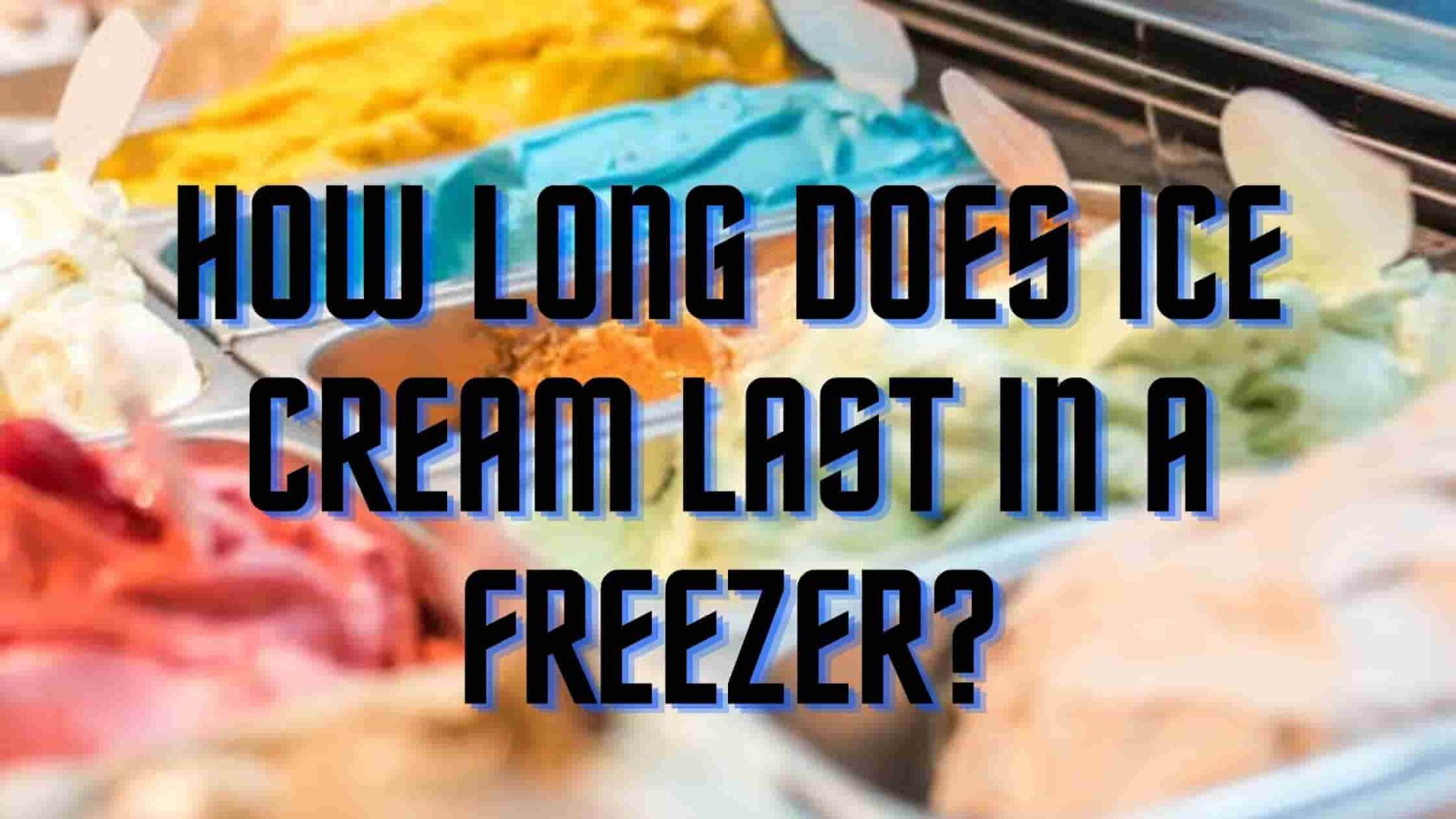How long does ice cream last in the freezer? This question haunts every ice cream enthusiast. Dive into our comprehensive guide to uncover the secrets of ice cream longevity, ensuring your frozen treats remain delectable for days to come.
From understanding the impact of temperature and packaging to exploring the factors that influence ice cream’s shelf life, we’ll provide you with the knowledge to store your ice cream like a pro.
Ice Cream Storage: How Long Does Ice Cream Last In The Freezer

To maintain the quality and flavor of ice cream during freezer storage, it’s crucial to adhere to specific temperature and packaging guidelines.
Optimal Temperature Range
The ideal temperature for storing ice cream in the freezer is between -10°F (-23°C) and -18°F (-28°C). This temperature range helps preserve the ice cream’s texture, flavor, and prevents the formation of large ice crystals.
Airtight Packaging
Airtight packaging is essential to prevent freezer burn, which occurs when moisture from the ice cream evaporates and forms ice crystals on its surface. Choose containers that are airtight and moisture-proof, such as plastic containers with tight-fitting lids or freezer-safe bags.
Impact of Packaging Materials
The material of the packaging can affect the shelf life of ice cream. Avoid using thin or flimsy containers, as they may allow moisture to penetrate and cause freezer burn. Instead, opt for thick, durable containers that provide better insulation and protection.
Factors Affecting Ice Cream Shelf Life
Ice cream shelf life depends on several factors, including its ingredients and storage conditions. Understanding these factors can help you extend the lifespan of your favorite frozen treat.
Ice Cream Ingredients
Sugar content and stabilizers play a significant role in ice cream’s longevity. Sugar acts as a preservative, inhibiting the growth of bacteria and preventing ice crystals from forming. Stabilizers, such as guar gum or xanthan gum, help maintain ice cream’s smooth texture and prevent it from becoming grainy.
Storage Conditions
Temperature fluctuations and exposure to light can compromise ice cream quality. Ideal storage conditions involve maintaining a constant temperature of around18°C (0°F) and minimizing exposure to light. Temperature fluctuations can cause ice crystals to form, affecting the texture and flavor of the ice cream.
Exposure to light can lead to oxidation, causing the ice cream to develop an off-flavor and color.
Tips to Extend Ice Cream Shelf Life, How long does ice cream last in the freezer
* Store ice cream in the coldest part of your freezer, usually the back or bottom.
Ice cream can last in the freezer for up to 2 months, but it’s best to enjoy it within the first month for the best flavor and texture. If you’re looking for a healthier alternative to chocolate, consider trying carob powder.
It’s a natural sweetener that can be turned into a delicious chocolate substitute. Learn how to turn carob powder into chocolate with our easy-to-follow guide. Once you’ve made your carob chocolate, you can enjoy it on its own or add it to your favorite ice cream recipes.
- Keep ice cream in its original container or transfer it to an airtight container to prevent exposure to air.
- Avoid frequent opening and closing of the freezer door, as this can cause temperature fluctuations.
- If you notice any changes in the texture, flavor, or appearance of your ice cream, discard it to prevent foodborne illness.
Types of Ice Cream and Their Shelf Life
Different types of ice cream have varying shelf lives due to variations in their composition and storage requirements. Understanding these differences can help you maintain the quality and safety of your frozen treats.
The following table summarizes the shelf life of different ice cream types, along with the reasons for these variations:
| Ice Cream Type | Shelf Life | Reasons for Variation |
|---|---|---|
| Regular Ice Cream | 2-3 months | Contains higher fat content, which slows down melting and crystallization |
| Low-Fat Ice Cream | 1-2 months | Lower fat content makes it more susceptible to melting and crystallization |
| Non-Dairy Ice Cream | 1-2 months | Lacks the natural stabilizers found in dairy, making it more prone to separation |
Examples of popular ice cream brands and their recommended storage guidelines include:
- Ben & Jerry’s:Up to 2 months in the freezer
- Haagen-Dazs:Up to 3 months in the freezer
- Talenti:Up to 1 month in the freezer (non-dairy options)
Final Wrap-Up
Remember, storing ice cream properly is an art form that requires precision and care. By following the tips and tricks Artikeld in this guide, you’ll be able to savor your favorite frozen treats for longer, ensuring they remain a delightful indulgence every time you reach into the freezer.

